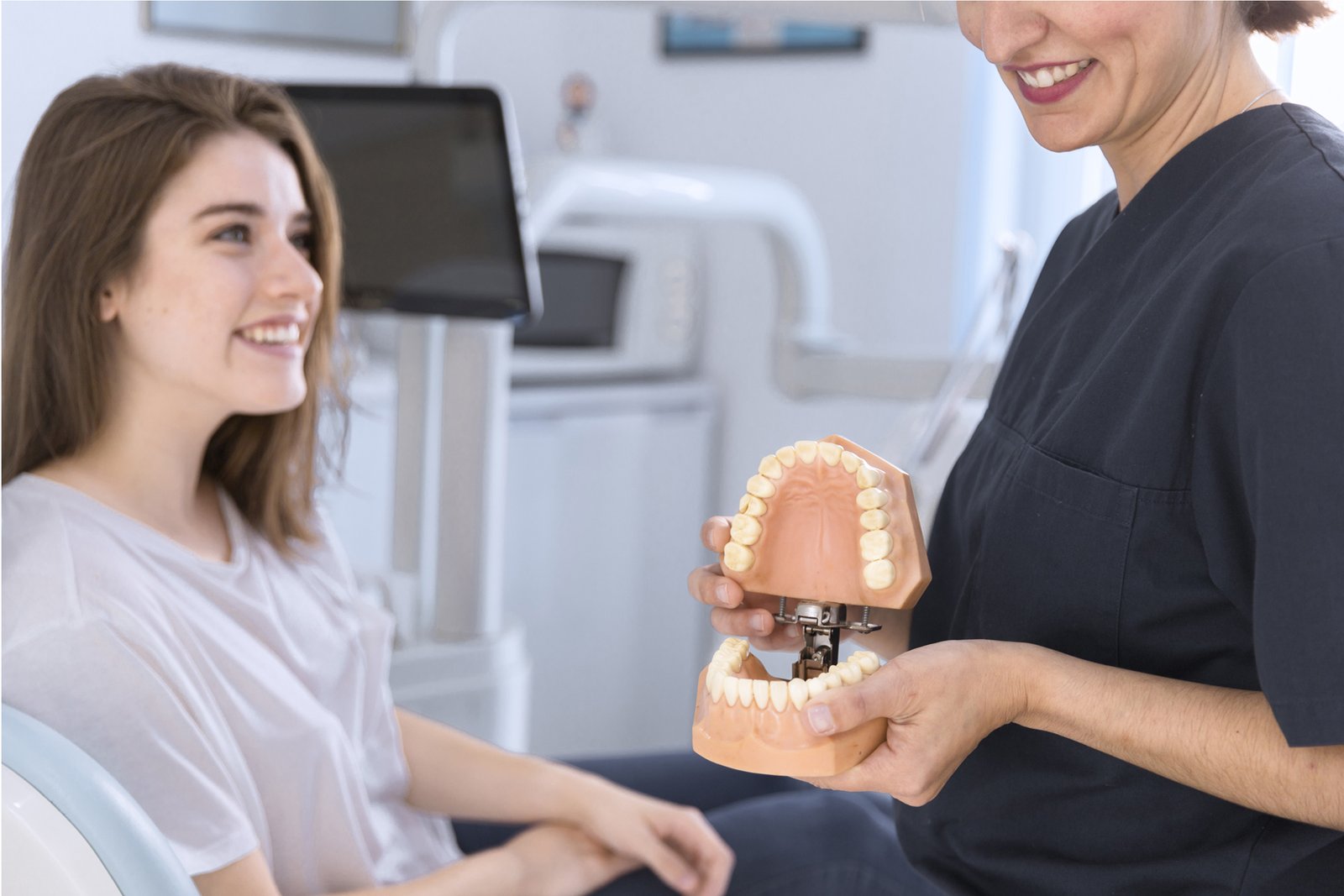A HEALTHY SMILE
Periodontics is a specialty within dentistry focused on the health of the tissues surrounding and supporting the teeth, also known as the periodontium. These tissues include the gums, alveolar bone, periodontal ligament, and root cementum. Their health is essential for a strong and lasting smile.
Various factors influence the development of periodontal diseases such as gingivitis or periodontitis. Poor oral hygiene, smoking, diabetes, certain medications, and genetic factors are some of these factors. Treatment can range from a simple dental cleaning to more complex surgeries, depending on the severity of the disease.


PREVENTION OF PERIODONTAL DISEASES
Prevention is essential for maintaining good periodontal health.
- Daily oral hygiene: Brush your teeth twice a day, use dental floss, and mouth rinses.
- Dental visits: Professional check-ups and cleanings help prevent the buildup of plaque and the onset of periodontal diseases.
- Healthy lifestyle: Avoiding tobacco and maintaining a balanced diet contribute to gum health.
PERIODONTAL TREATMENTS
Timely treatment of periodontal diseases not only prevents tooth loss but also reduces the risk of other systemic diseases such as cardiovascular diseases.
- Cleaning, scaling, and root planing: A procedure to remove plaque and tartar below the gum line.
- Periodontal surgery: Used in cases of advanced periodontitis to reduce periodontal pockets, repair tissues, and reshape the bone.
- Periodontal maintenance: Periodic cleaning and check-up visits to prevent disease progression and maintain periodontal health.

FREQUENTLY ASKED QUESTIONS
Periodontics is the specialty of dentistry that deals with diseases of the gums and other tissues surrounding and supporting the teeth. It helps to prevent and treat problems such as gingivitis and periodontitis to maintain good oral health and prevent tooth loss.
Bleeding gums are often a sign of gingivitis, an inflammation caused by the buildup of bacterial plaque. Gingivitis can progress to periodontitis if left untreated. Improving oral hygiene and visiting the dentist can stop this issue.
Initial symptoms include red, swollen, sensitive gums that bleed easily. Persistent bad breath and gum recession are also warning signs. If you notice these symptoms, a periodontal check-up is recommended.
Periodontitis is a serious infection that affects the bone supporting the teeth. Without treatment, it can lead to tooth loss. Treatments include deep cleaning (scaling and root planing), periodontal surgery in advanced cases, and periodic maintenance.
Periodontal treatments, such as scaling and root planing, can be performed under local anesthesia to avoid discomfort. Most patients experience minimal discomfort, and post-treatment pain is manageable with pain relievers recommended by the dentist.
Brushing and flossing are essential, but professional cleanings are also necessary to remove tartar that cannot be cleaned at home. Regular visits to the dentist help to prevent and detect any signs of periodontal disease in a timely manner.
Yes, periodontal diseases have been shown to be related to health problems such as heart disease, diabetes, and complications during pregnancy. Maintaining good periodontal health is beneficial for the overall health of the body.
Genetic predisposition is a risk factor for some people, but periodontal disease is not inevitable. With good oral hygiene and regular check-ups, you can significantly reduce the risk, even if you have a genetic predisposition.
If you have healthy gums, an annual check-up is usually sufficient. If you have periodontal disease, your dentist or periodontist may recommend check-ups and cleanings every 3 to 6 months to maintain control of your gum health.
Brush your teeth twice a day using the proper technique, floss daily, and consider using mouthwash recommended by your dentist. Avoiding tobacco and maintaining a healthy diet also contribute to gum health.

Take care of your oral health, invest in your quality of life.
We accompany you in the process of achieving a healthy smile!


